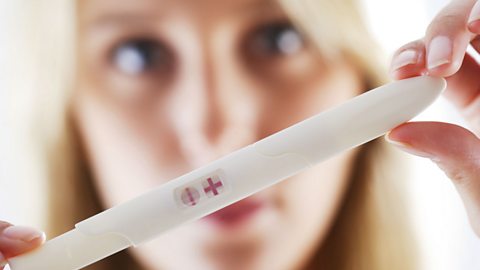Monoclonal antibodies - Higher
Greg Foot describes how monoclonal antibodies are produced and how they work
The immune system has evolved to recognise pathogens. pathogenMicroorganism that causes disease. have proteins on their surface called antigenA protein on the surface of a substance (often a pathogen) that triggers an immune response.. When a pathogen infects the body, the white blood cells recognise these antigens as foreign antigensNot the same as those of the host organism. These are recognised by the immune system of the host and attacked by its white blood cells. and attack them by producing proteins called antibodyA protein produced by the immune system in humans (and other animals) that attacks foreign organisms (antigens) that get into the body..
Antibodies bind to specific antigens on pathogens. This means that only one type of antibody will bind to a matching antigen. Once bound, the antigens - and the cells they are found on - are joined tightly together. This makes them easier to identify.
'Mono' means one and 'clone' means identical copy. monoclonal antibody Antibodies against a specific antigen, made in a laboratory from clones of a single white blood cell. are identical copies of one type of antibody which are all produced by clones of the original white blood cell.
Production of monoclonal antibodies
Modern scientists use the immune systems of mice to make monoclonal antibodies.
- An antigen is injected and then white blood cells are removed.
- The white blood cells are screened to find a white blood cell making the correct antibody.
- This white blood cell can be cloneAn organism that is genetically identical to another organism. and grown in the laboratory. All the clones will continue making the same kind of antibody.
- The monoclonal antibodies are harvested and used.
Using monoclonal antibodies
Monoclonal antibodies can be used to identify and diagnose infections, such as HIVHuman Immunodeficiency Virus, a disease which damages cells in the immune system. and AIDSAcquired Immune Deficiency Syndrome – a disease of the human immune system caused by infection with Human Immunodeficiency Virus (HIV)., herpes and chlamydia. In the simplest test monoclonal antibodies to a known pathogen are added to a sample of an unknown pathogen. If the antibodies attach to antigens and make cells clump together, then the unknown pathogen is identified as the monoclonal antibody pathogen.
Some monoclonal antibodies have been attached to dyes that will glow fluorescentWhen a chemical absorbs ultraviolet light and releases it as visible light. under UV light. This can make disease identification much easier as the coloured cells can easily be seen with a microscope.
Monoclonal antibodies are very useful as a diagnostic test because:
- they can detect very small amounts of pathogens in a sample, and
- they are very specific to a particular antigen and so the test is reliable
Pregnancy test kits
Pregnancy test kits use monoclonal antibodies. These have been designed to bind with a hormoneChemical messenger produced in glands and carried by the blood to specific organs in the body. called HCG which is found only in the urine of pregnant women. Monoclonal antibodies are attached to the end of a pregnancy test stick onto which a woman urinates. If she is pregnant, HCG will be present in her urine and will bind to the monoclonal antibodies on the test stick. TThis causes a change in colour or pattern, which indicates pregnancy. The specific monoclonal antibodies in the pregnancy testA device which indicates if a woman is pregnant by using monoclonal antibodies which bind with the hormone HCG. will only bind with HCG.
